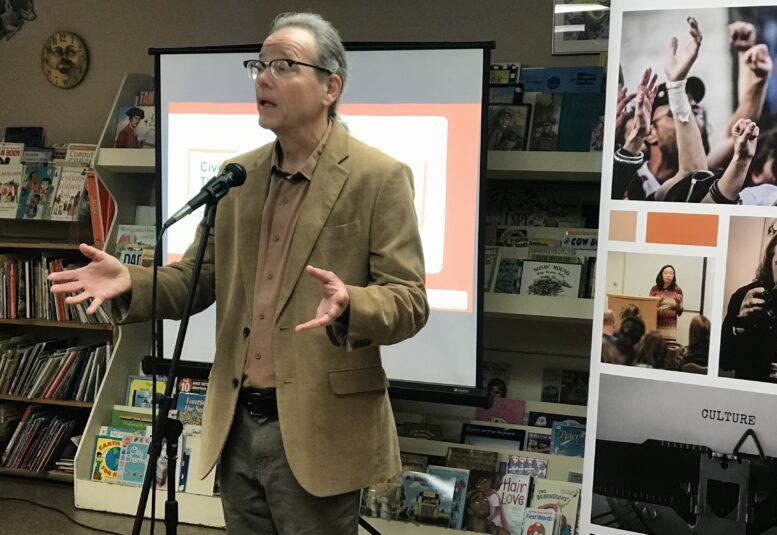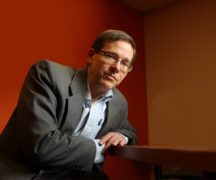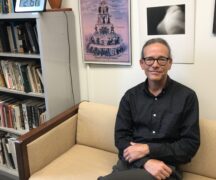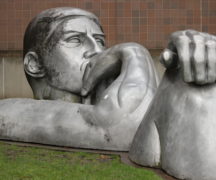By DAVID DUPONT
BG Independent News
By the time historian Timothy Messer-Kruse presented his report on his research into the history of civics what he’d learned had outpaced the title of his talk.
Messer-Kruse, who teaches Ethnic Studies at BGSU, spoke recently at Grounds for Thought, about his recent work sponsored by the Institute for the Study of Culture and Society. The talk was originally titled “Civics and the Civil War: The Racist Origins of the Citizenship Education Industry.” But as he drilled back into history he realized that title wasn’t quite right.
It turns out the first “civics” text was written more than 70 years before the Civil War, and it wasn’t called civics. That term was coined in by Henry Waite in 1885 when the American Institute of Civics was founded.
Civics has its roots in the second edition of Noah Webster’s American Spelling Book. It appeared as a five-page addendum, “a moral catechism,” and a three-page addendum “a political catechism.” Webster dropped these from the book’s subsequent editions. There was not much interested in the subject.
Then in 1827, William Sullivan, a financier so powerful he got a cut from the Louisiana Purchase, penned his own citizenship text. At the time factories were sprouting up in the valleys of New England, and Irish immigrants were beginning to make their presence felt.
The growth of the working class in the industrializing north and the influx of Irish immigrants was seen as threatening those values espoused in Webster’s catechism. They were seen as “agents of disorder, agents of crime, and agents of riot,” he said. They went on strike and eve tried to overthrow the government of Rhode Island.
The Irish in particular were seen as alien. They were Catholics and spoke Gaelic.
“They understood the power of ethnic, racial, class solidarity,” Messer-Kruse said.
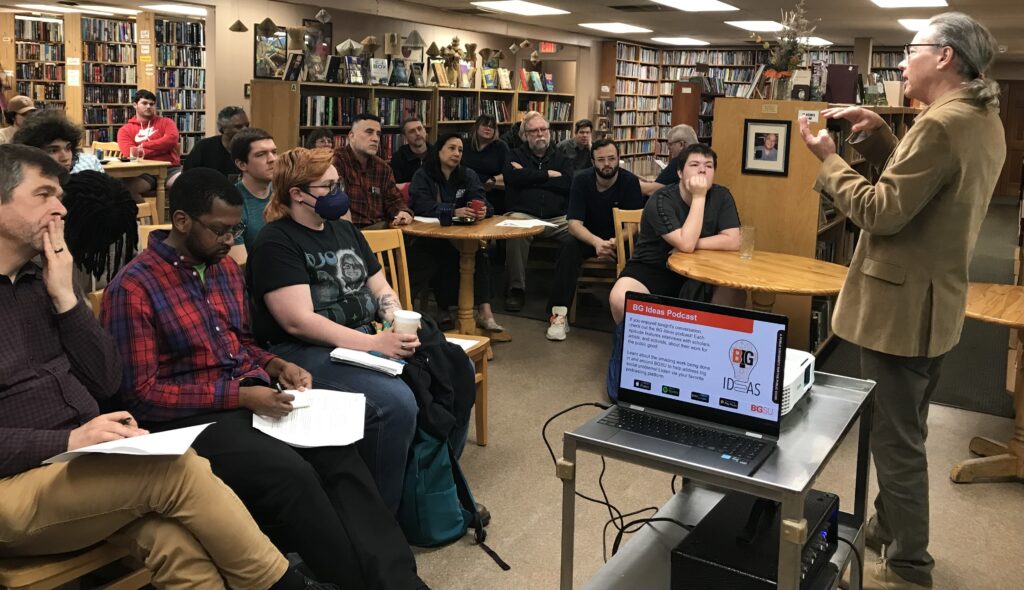
Civics, Messer-Kruse said, unlike other disciplines, was meant not to impart knowledge but to change behavior. The founders of civics decided there was a right way and a wrong way to vote.
The right way was to look at policy documents, study the law, and ignore “claims of community solidarity, or religious solidarity or ethnic solidarity or language solidarity. Those reasons were “ outside the realm of proper democracy.”
Instead, citizens should vote based on policies, even if those policies weren’t necessarily in their self-interest.
As the franchise extended, political and social leaders grew concerned voting behavior by those seen as uneducated. They decided: “Let’s give people a test to see if they’re literate before they vote.” In other words, Messer-Kruse said: “If you want to vote, you’ve got to read my civics book.”
So, literacy tests for voters were instituted. Those did not start, he said, in the South. The first literacy tests were given in New Hampshire in 1854, and then is Massachusetts in 1855. When they were instituted later in the South as a way of restricting voting by former slaves, there was nary a complaint from the rest of the country, Messer-Kruse said.
A speech urging the teaching of citizenship at the 1884 National Education Association convention was so enthusiastically received that the next year Waite, who had opposed building schools for African Americans because he believed they were educatable, and others founded the American Civics Association. The institute had a slate of about 290 speakers, all tenured professors, who would travel the country espousing the values of civics. “It was almost immediately embedded in academia,” Messer-Kruse said.
Among its leaders was another Waite , the Chief Justice of the Supreme Court, Morrison Waite, who had practiced law in Toledo. Waite High School is name for him. The irony is that at the same time he was espousing civics, the Supreme Court under his leadership was striking down the Reconstruction Era protections for Black voters, Messer-Kruse said.
The discipline, which evolved into political science, has become entrenched reach in academia, so that it is now part of daily schooling.
But that’s not enough for some people, Messer-Kruse said.
The controversial legislation, Senate Bill 83, among other provisions would mandate that all colleges require students pass a civics class in order to graduate. Inside Higher Ed said the bill “would prohibit public colleges and universities from implementing diversity, equity and inclusion programs and remove job protections for tenured faculty members and staff, among other restrictive measures.”
[RELATED: Making ethnic studies illegal in Ohio: Even watered down, SB 83 requires teaching racism]
Messer-Kruse has been an outspoken opponent of the far-reaching legislation. His opposition has even gotten him placed on a right-wing group’s watch list.
Messer-Kruse said he imagined legislators are imagining those books would be the products of conservative bastions such as Hillsdale College
It would be “poetic justice,” he said, if he wrote a civics book, and that’s what he set out to do.
He has received funding from the open education project of BGSU library and the Ohio Department of Higher Education to write his text. It should be available a year from now in open-source format and available free of charge.
This may coincide, he said, with any new civics requirement taking effect.
Messer-Kruse said he did not want to argue all civics education is bad, just to expose the context and reasons for its development.
It’s now “a multi-billion industry … ‘the civics industrial complex,’” he said, with funding from the government and private philanthropies. “It cycles through the same arguments” that have been “liberally white-washed.” Now proponents talk social engagement, community spirit, and service learning. “Their genealogy is pretty darn clear.”
If people consider all the ramifications, Messer-Kruse said during the question-and-answer section, they may stop calling certain groups of voters “deplorables.”

